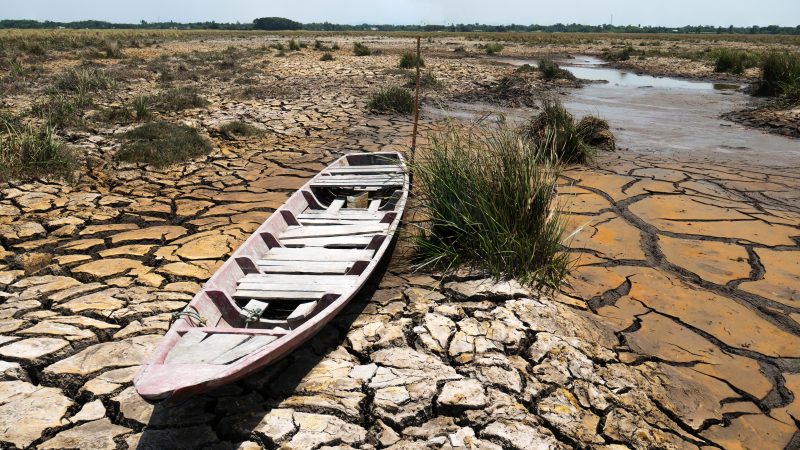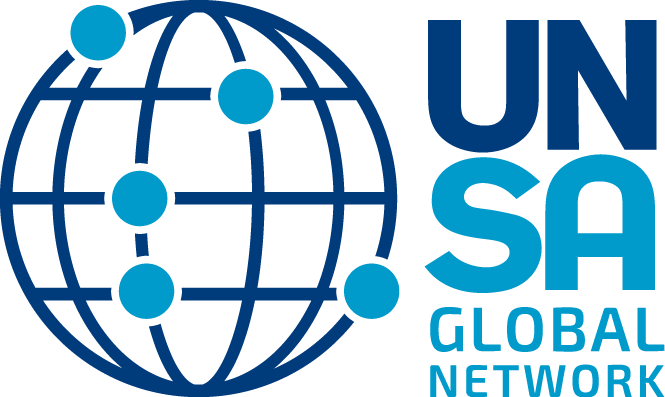
Climate Change and Migration - Our Next Big Challenge
You could be forgiven if you didn't know the term “climate migration”. It’s an expression that describes migrants who by choice or necessity, leave their homes due to sudden or long-term effects of climate change.
Whether that is a family fleeing after a devastating flood or forced off their land due to prolonged drought, the climate is increasingly becoming a major push factor behind people’s decision to leave their homes. Today, however, a rapidly changing climate means this impact on fragile communities is exacerbated many-fold. As the effects of climate change become more visible across the globe, migrants, refugees, internally displaced persons and their hosting societies are set to face a new generation of challenges.
UNHCR’s 2020 mid-year-trends estimated that almost 80 million people were displaced around the world for reasons such as conflict, persecution, and human rights violations. These staggering numbers, however, represent only a fraction of what really lies ahead. It is estimated that by the year 2050, one billion people will be displaced, not from conflict, not from persecution, but solely from climate-related emergencies.
So how did we get here? And why is this issue more pressing than ever?
Climate migration isn’t new
Despite this being a fairly recent term in the world’s vocabulary, the phenomenon of climate migration is not new. In fact, the first instances of climate migration date back as far as 120,000 years ago when early humans migrated to Europe from Africa. While these historical movements are hard to trace, scientists agree that large-scale climate episodes helped distribute early populations across the globe— into the Americas, Eurasia, and Australia.
120,000 years later, in 2021, the circumstances are radically different.
In an overpopulated world, humanity is pushed into dire conflict with nature, destroying habitats, causing chaos in natural ecosystems, and facilitating a dangerous surge in CO² emissions.
We are currently living and breathing an ecological disaster. As it unfolds, individuals appear powerless in the face of fossil fuel industries, systemic neglect, exponential economic growth, and exploding populations.
Changing climate = changing migration
Climate change is accelerating metrics that directly impact human existence. The main measure here is temperature. Global temperatures impact everything from the land we grow food on to the water we drink. From the composition of gasses in our atmosphere, to the biodiversity and oxygen-making capabilities of our oceans and forests, climate change is affecting the very fundamentals of life.
This is not a future issue that will arrive at some point, it is happening right now.
The overwhelming loss of biodiversity, droughts, rising sea levels, and increasing frequency of extreme weather events mean that irregular and forced migration, as a result, is already on the rise.
From the Sahel to the Pacific
The damaging effects of climate change on vulnerable regions such as the Sahel in Africa is a mere snapshot of the climate migration phenomenon. The once rich and fertile Sahel region is now facing severe desertification, water shortages, and loss of biodiversity. The consistent changes in climate are wreaking havoc on local farming and agricultural communities.
In areas of resource scarcity, climate change is pushing communities into competition over remaining and limited resources, causing widespread malnutrition, hunger, and driving local and regional tensions.
As families struggle to cope with the situation, other factors such as lack of education, conflict, and human rights abuses contribute to an environment where moving somewhere else is the only option. Disasters become cascading disasters, meaning communities have not fully recovered from one disaster before being hit with another, further weakening and dislocating support networks.
Yet, the causal links between climate change and forced displacement grow day by day.
The consequences are not just felt by those fleeing. Host communities suffer when resources become threatened, causing divisions and animosity. Conflict cycles are beginning to be linked to climate change. Failing crops, water shortages and meagre support systems are pushing farmers and cattle herders to take up arms and fight for their living.
Halfway around the world in the Pacific Ocean, rising sea levels are engulfing entire islands. Suddenly and yet predictably, entire populations are becoming stateless, seeking protection from a broken system that is only starting to realise the full impacts and consequences of inaction.
Where it bites the most
In these dire scenarios, it is vulnerable communities that will suffer the most. In the beginning, that is. Climate change and displacement spell consequences for everyone, with the effects becoming a precursor to conflict, both internally and between states.
The situation in the Sahel leads to an environment where terrorist groups such as Boko Haram fuel bloody and violent campaigns, feeding off the instability and lack of resources— they recruit, plunder and disconnect displaced communities, causing lasting damage to the region and causing global instability and risk.
Climate, migration, and conflict all interact with each other in different and changing ways. One issue cannot be looked at without dealing with the other two.
Seeking a new climatology
Climate change demands that we make urgent change a priority. We can begin wherever we are, recognising the common human need to change behaviour and change perceptions. By creating a new social climatology of inclusion and empowerment we can affect the course of events.
Inclusivity as a practice can set off a positive chain of events. Bringing women to the table, to leadership, to change instigating roles is a big step forward because ultimately equality of voice drives meaningful change.
Bringing forward youth, minorities and displaced communities into discussions is important too, because all voices must be heard in deciding what the future looks like.
Delivering on international commitments like the Paris Climate Agreement is essential because working together on shared goals is how broader change can be institutionalised and realised.
Dealing with the climate migration crisis calls us all to make the step towards individual empowerment. The personal decision to change behaviours that endanger our climate sets up a momentum for collective change. Whether that’s saying no to plastic, choosing greener alternatives, or supporting bona fide climate-neutral initiatives, individual resolve to shift our collective paradigm is by far the strongest tool we have.
There may not be any immediate personal benefit from changing your behaviour. It might even make life a little harder at first for change is never easy. But by seeing the connection between every individual action you take and the goal of a global shift in behaviour you become part of the solution. The question is whether we will learn collectively to change while this is still an option for humanity.
Johannes Kornberger
